Resource Hunter Janeen Finds Stability and a Savings Account
Published on April 18, 2024 in Finances
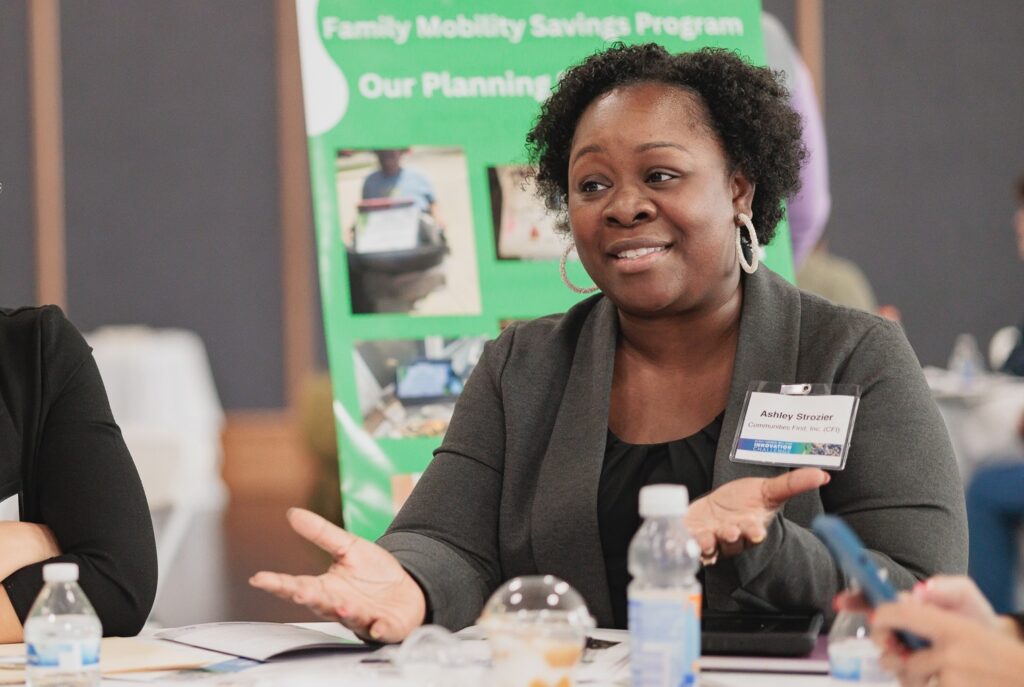
Less than a year ago, Janeen Jackson was experiencing homelessness and struggling to make a way for her children and grandchildren.
“Life wasn’t too easy for me,” said Janeen, who is 46. “I’ve been to shelters, I’ve been living with people— but me, I never give up. I’m a resource person.”
Janeen is not alone. In Detroit, nearly 70 percent of households live below the ALICE survival budget, leaving them unable to afford their basic needs. A 2020 report from University of Michigan’s Poverty Solutions found over half of Detroit residents are financially insecure or in financial trouble. These financial disadvantages are largely the result of systemic forces and the legacy of discriminatory policies and market practices – not individual bad financial choices.
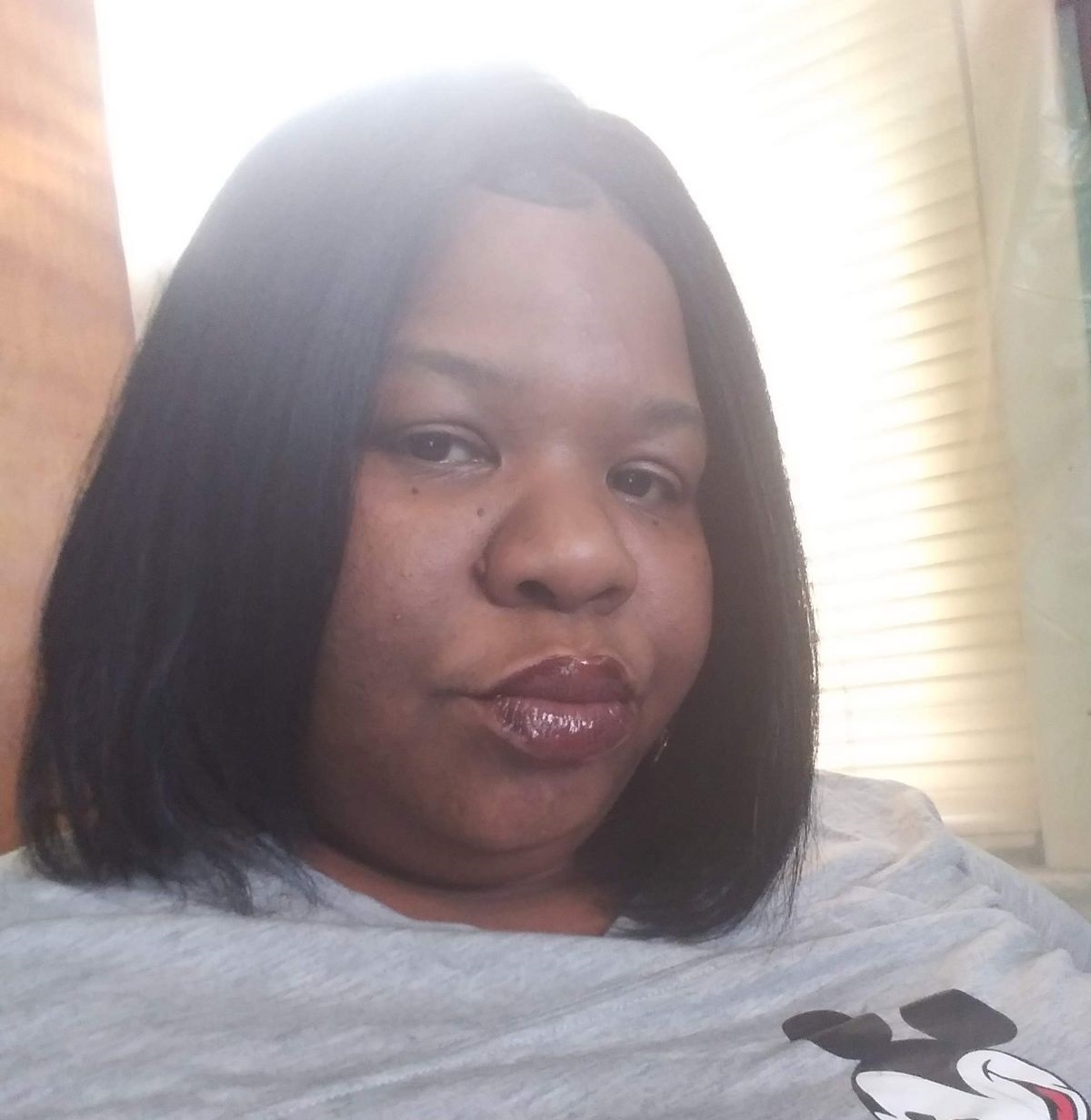
Life wasn’t too easy for me. I’ve been to shelters, I’ve been living with people— but me, I never give up. I’m a resource person.” – Janeen Jackson
To address these systemic problems, United Way for Southeastern Michigan came up with a bold solution– launching the Detroit Financial Well-Being Innovation Challenge in partnership with University of Michigan’s Poverty Solutions in 2022. Over 60 organizations expressed interest in the Challenge, contributing their big ideas to change the financial game for Detroiters.
“The deck of financial opportunity is stacked against Detroiters,” said Megan Thibos, director of community impact innovation at United Way for Southeastern Michigan. “This challenge was designed to catalyze game-changing, innovative ideas that are going to unstack the deck for ALICE households – to create more financial opportunity so that hard-working households have a fair shot at financial stability instead of being forced to try to succeed against the odds.”
Through the Challenge, Communities First Inc (CFI), a local nonprofit dedicated to building healthy communities through economic development, affordable housing and innovative programming, partnered with One Detroit Credit Union to launch the Family Mobility Savings Program (FMSP). The program jumpstarts participants’ emergency savings while providing goal-based financial coaching.
In addition to coaching, clients are required to open a savings account. For many, it’s their first emergency savings account. For others, like Janeen, it is also the first credit union account they’ve ever had.
“I’ve never had a credit union account before, but they helped me with that,” said Janeen. “There’s different benefits you can get from the credit union for buying a house or starting a business.”
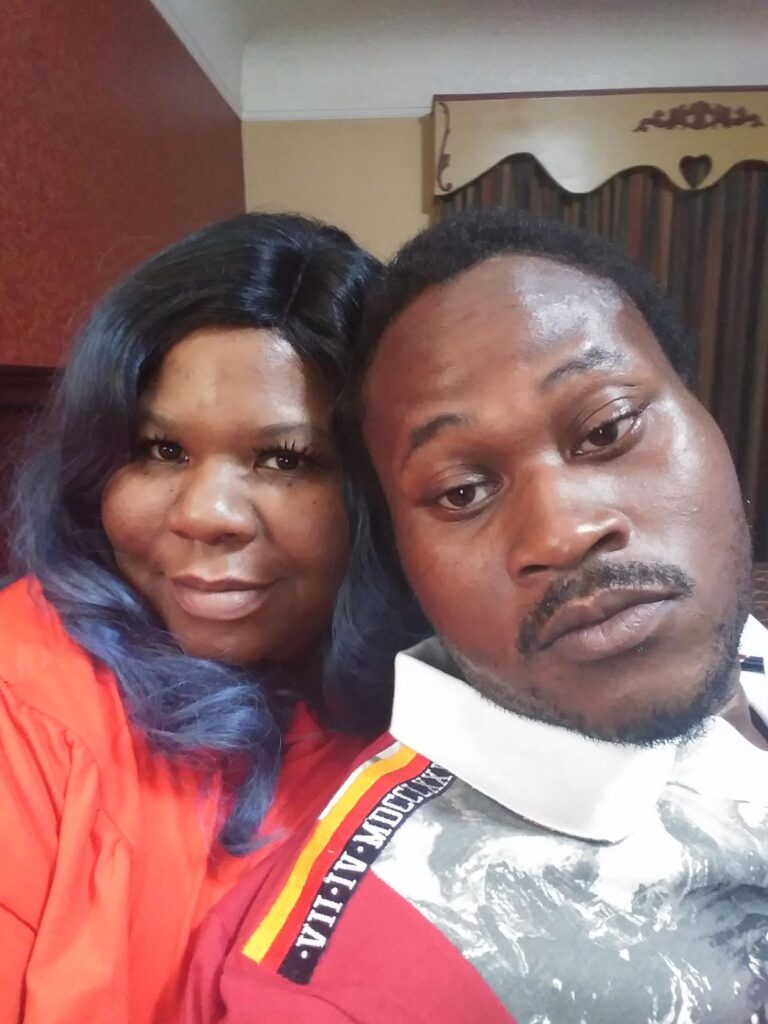
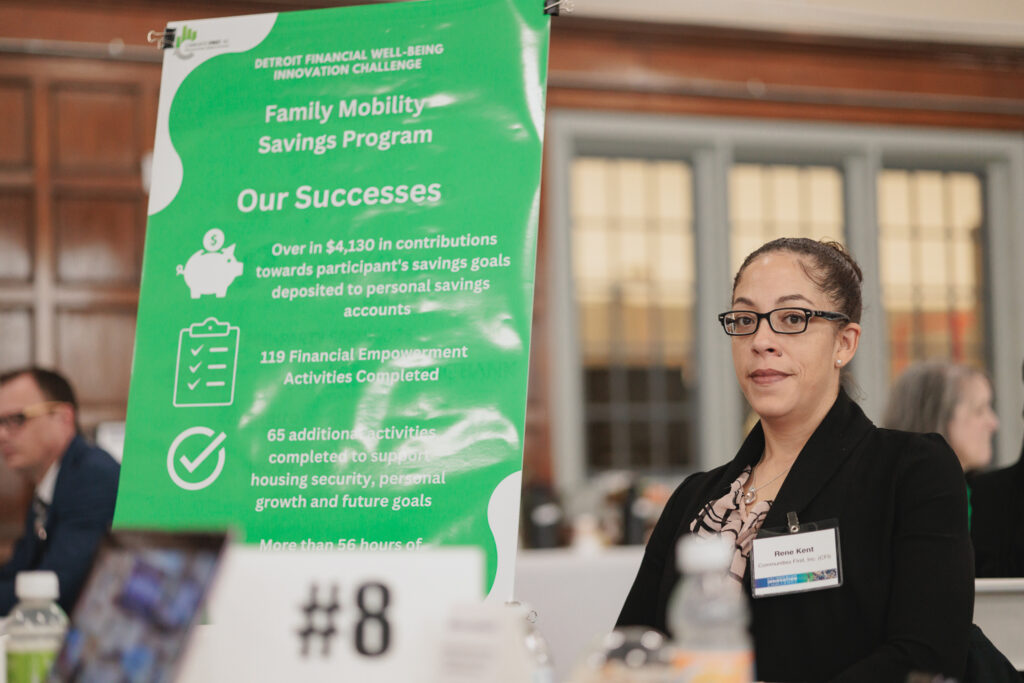
INNOVATIVE PROGRAM FOR DETROITERS
CFI’s FMSP program is one of six projects currently in the pilot stage, the third of four stages in the Challenge (concept, planning, pilot and scale). In the concept stage, the Challenge gathered ideas and fostered cross-sector collaborations. FMSP was chosen to move forward based on the criteria of being new, game-changing, informed, doable, scalable and equitable.
“Communities First did their due diligence in the Challenge— they were the only team that conducted a pre-pilot,” said Megan. “They really took advantage of every opportunity in the planning stage to prototype their model with people, so they could benefit from those lessons in the pilot stage.”

During the planning stage of the Challenge, CFI conducted research, tested program elements, and engaged with the community to refine their idea. In addition to funding, projects in the planning stage received technical assistance, monthly check-ins with their challenge manager and devoted research from UM Poverty Solutions.
“Communities First has really embraced what the Challenge has to offer,” said Megan. “They have been committed to seeing the opportunity in the challenge beyond funding and taking advantage of the technical assistance and tangible supports.”
Ashley Strozier, Family Mobility Coordinator at CFI, reported an overwhelmingly positive experience throughout the Challenge. “The level of support, technical assistance and follow-through has been really helpful,” said Ashley. “The feedback from United Way for Southeastern Michigan has been invaluable.”
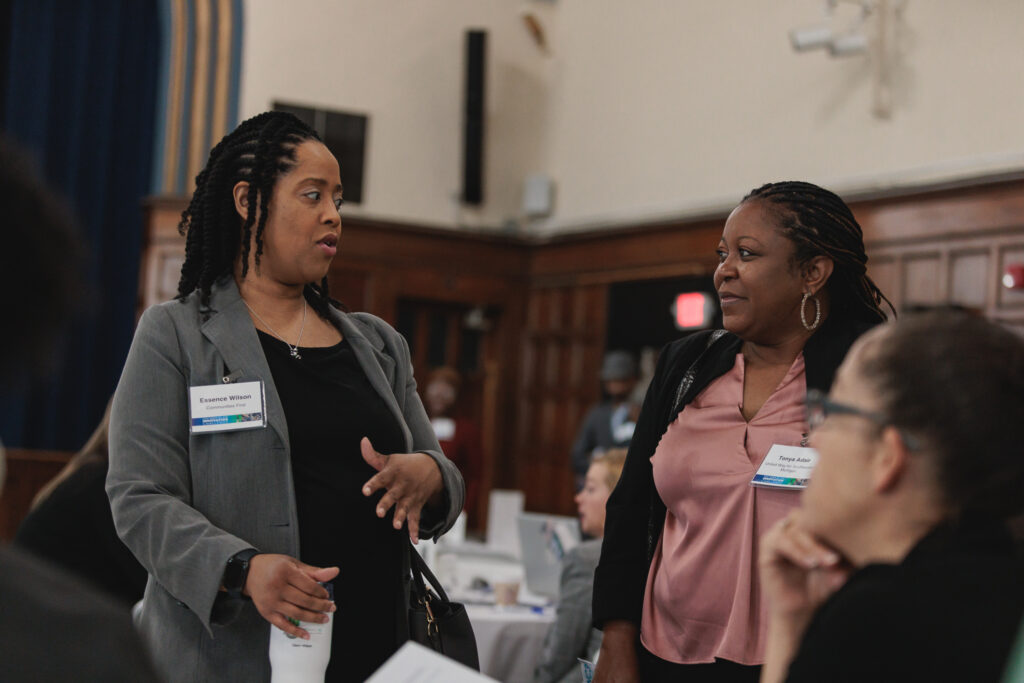
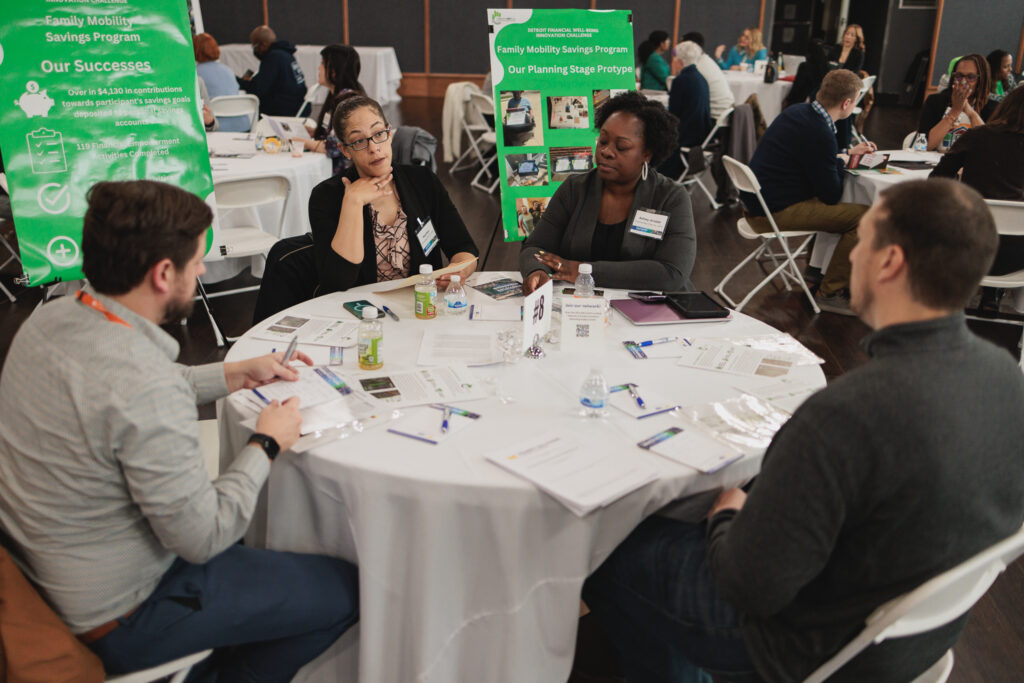
In July of 2023, FMSP received a pilot stage grant of $200,000 to set up in the real world with participants. The grant allows 100 participants to enter the six-month program with two to three hours weekly of financial activities and coaching. As participants achieve the goals, they get contributions to their savings accounts up to $1,000.
Having a credit union account opened Janeen’s eyes to all the of rewards that come with it. She is excited to have more opportunities for growth in her business, Any Occasions Baskets, which offers gift baskets loaded with goodies for holidays, birthdays and special occasions. FMSP has expanded Janeen’s mindset on saving, helping her to find stability in balancing her business and bills.
“The program taught me how to save better,” said Janeen. “I learned the technique of separating the ‘dos’ and ‘don’ts’ and that makes saving easier.”
“You get up, get your morning coffee, get yourself together and you sit down and think about what you need to do,” added Janeen. “You need to prioritize, put one thing first and the rest will fall in place.”

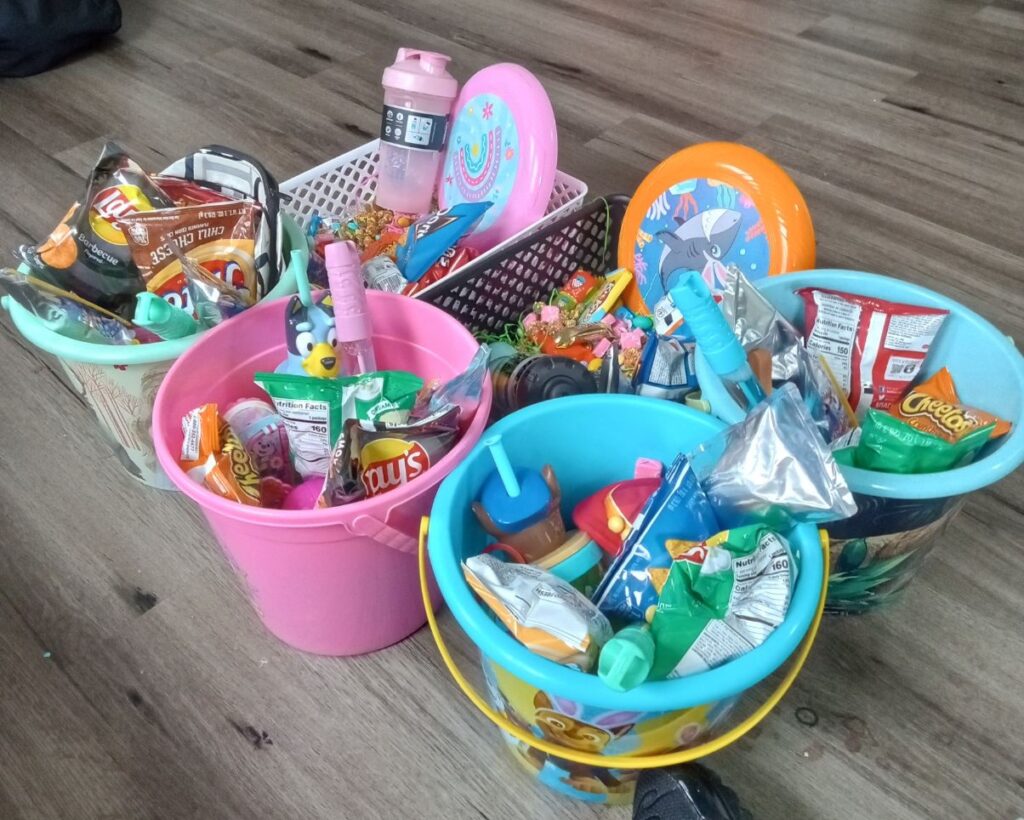

MAKING A WAY
“When I first met Mrs. Jackson, she was staying in a hotel,” said Ashley. “To see Mrs. Jackson not give up is really inspiring, she’s a resilient one— taking care of her children and grandchildren.”
When the City of Detroit wanted to assist Janeen in paying for stable housing, they required her to do the legwork and submit a photo of her ID. Short on time, Janeen was stressed about not having any transportation or payment method to get an ID. That’s when she decided to reach out to Ashley.
“Ashley came all the way from where she was at in her own car to take me to the Secretary of State and paid for my ID for me,” said Janeen. “That was so amazing—that she would make a four-hour drive to make sure I had what I needed to have.”
With Ashley’s assistance and her own tenacity, Janeen was able to move into a two-bedroom apartment in southwest Detroit. CFI has continued to be a resource for Janeen, supporting her needs and providing her with rideshares. When FMSP was ready to launch, Ashley knew Janeen would be interested in the resource and got her involved.
“Ashley and I have a great relationship,” said Janeen. “She’s helped me out tremendously—she helped me get into a place, get food and diapers and now, a credit union account.”
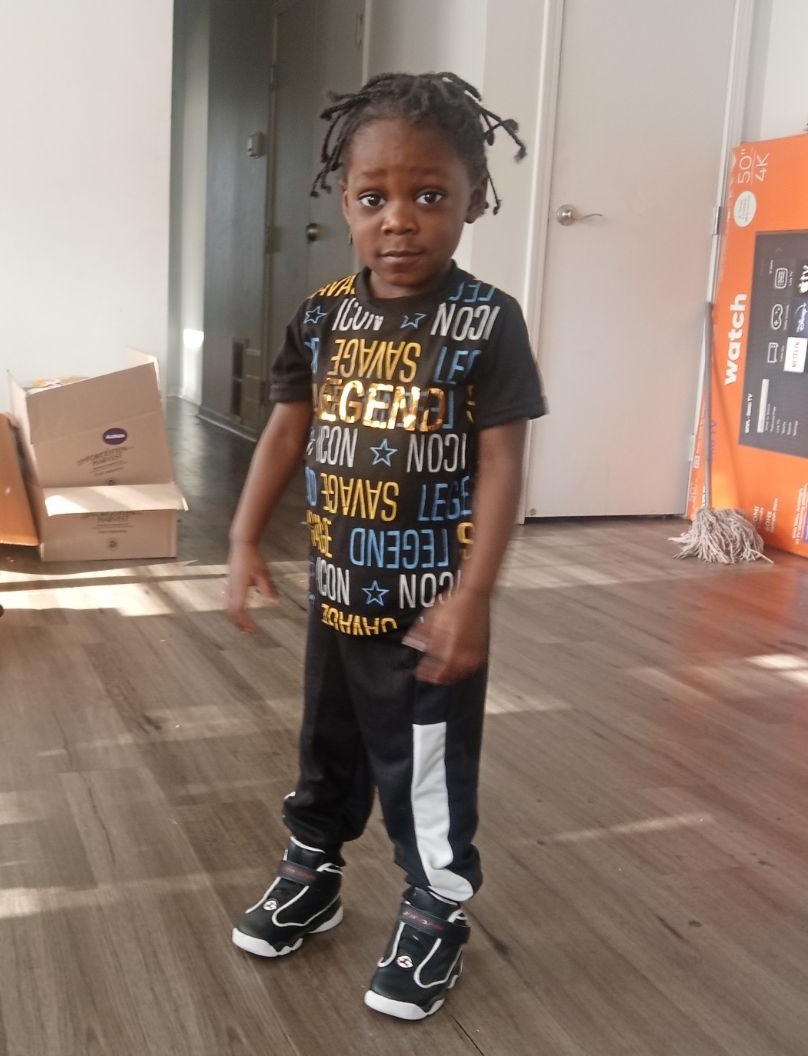
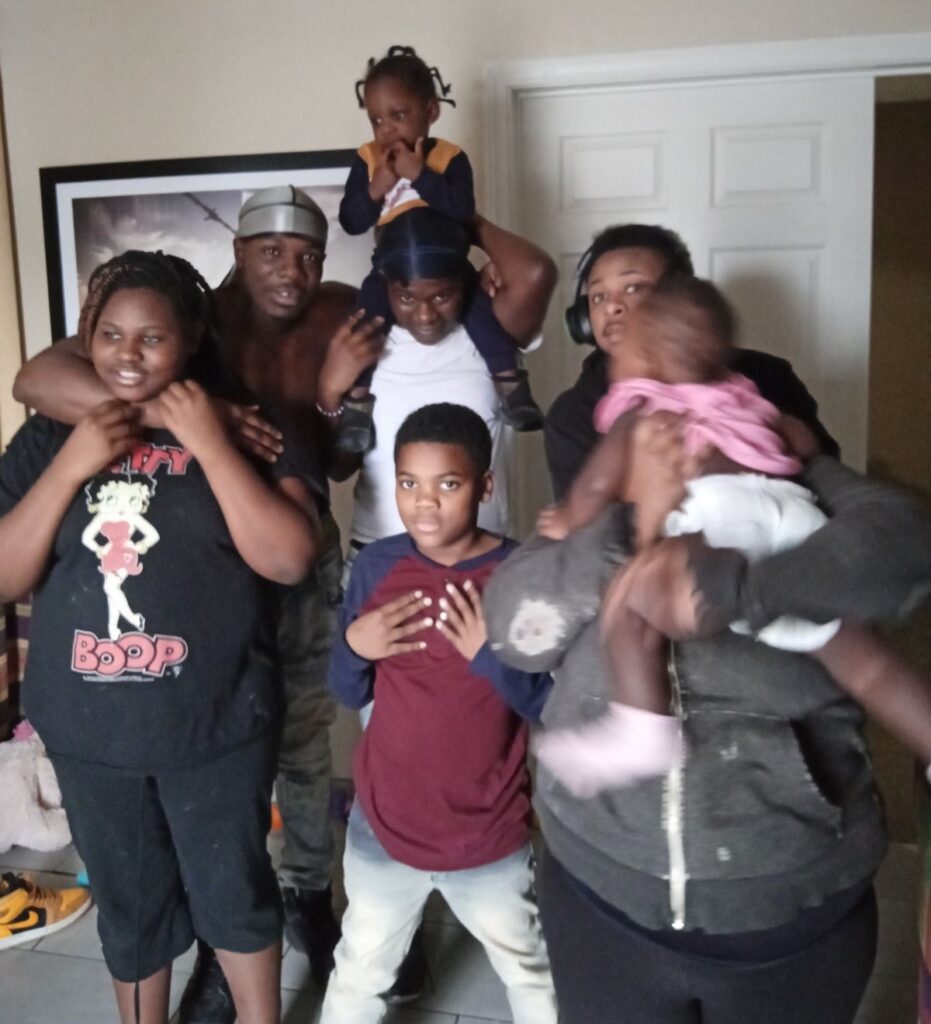
PERSONALIZED COACHING
FMSP piloted two cohorts of participants, 48 in the first cohort and 52 in the second. In the FMSP, a financial coach helps participants make smart money decisions. For the past 6 months, Ashley has provided personalized support to participants to learn about finances and gain new skills.
“I’ve been able to accomplish a lot in my time here, and I feel like I am just getting started,” said Ashley. “The thing I love the most about my position is being able to help people move from struggle to success.”
To make asking for help easier, Ashley prides herself on being approachable and most of all, relatable.
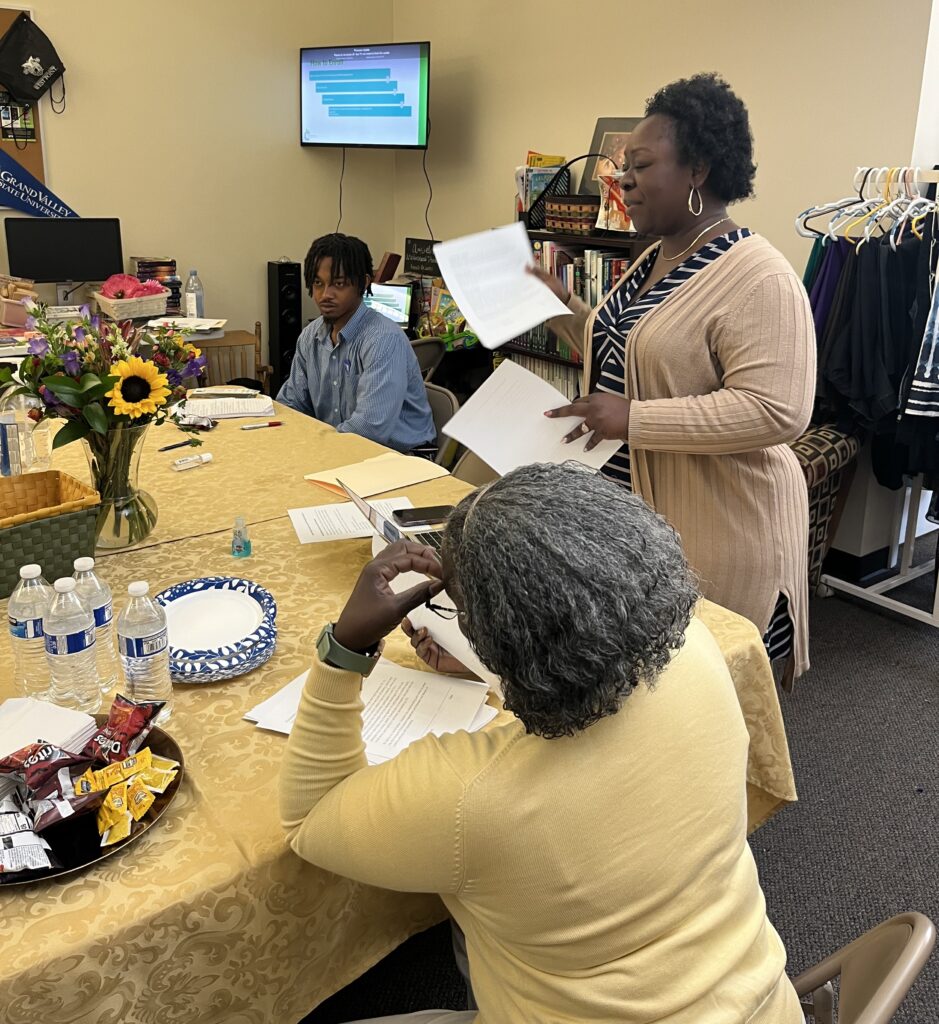
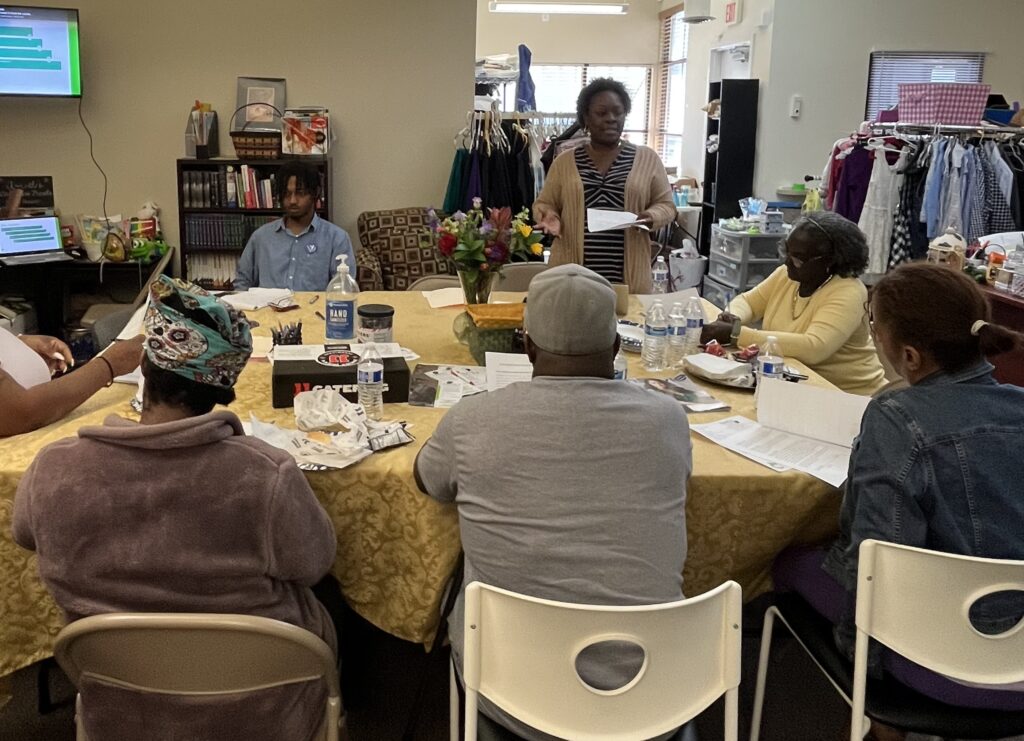
“When people tell me how difficult it’s to ride the bus to the grocery store, I know because I did it with two kids,” said Ashley. “It helps me with clients because they’re able to see that I’m different.”
“I know what it feels like to go through things by yourself and have limited resources. I know how nerve wracking it can be just to ask for help, because you don’t know what the answer is going to be, and that fear prevents people from being successful.”
While participants are not required to get approval to withdraw funds from their credit union accounts, they are required to talk to their coach about what the funds are being used for. Oftentimes, the financial coaches find other resources to assist with emergencies, allowing them to preserve the financial flexibility of their emergency savings accounts.
From a place of love and genuine connection, financial mobility coaches can hold participants accountable to their goals.
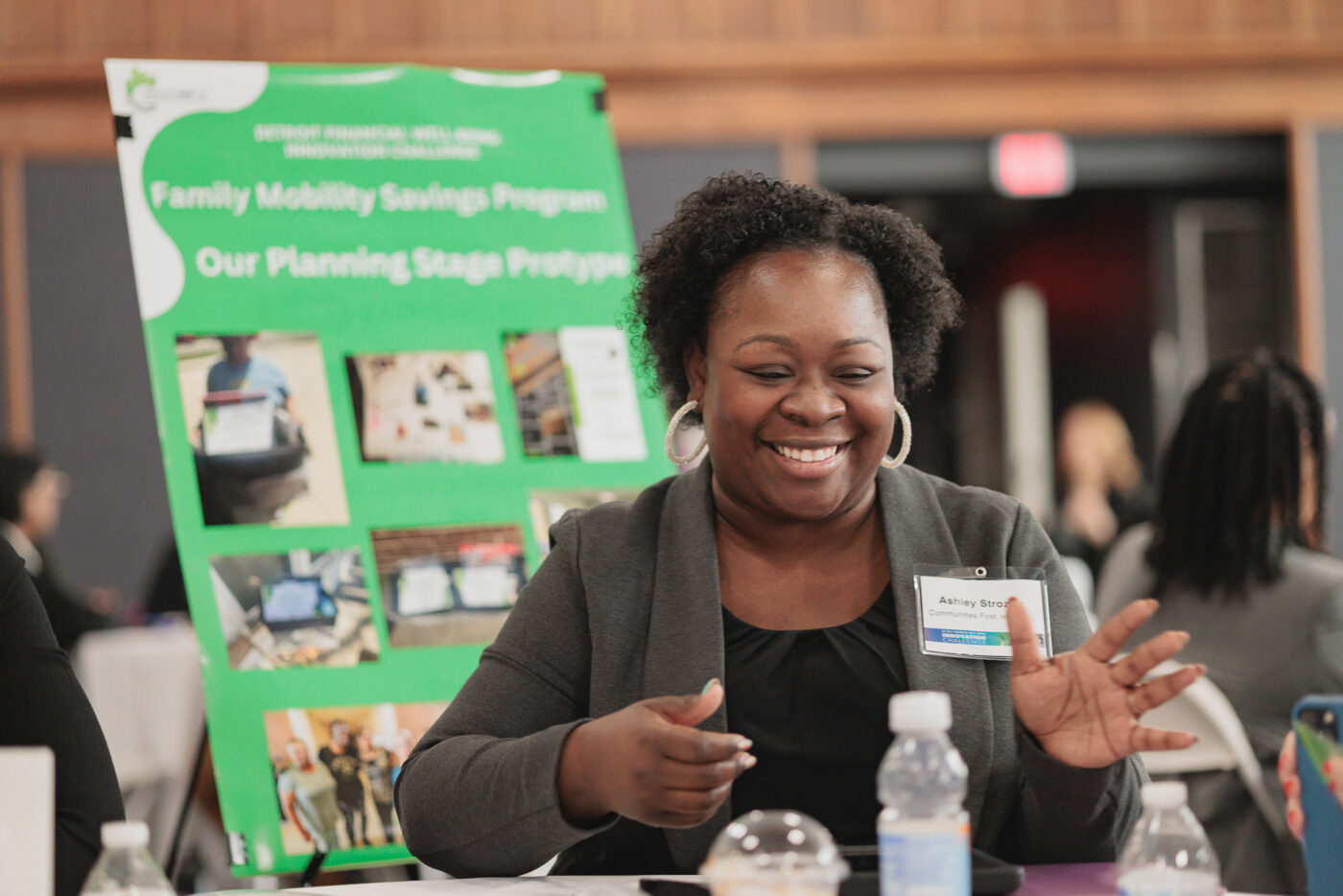
“The thing I love the most about my position is being able to help people move from struggle to success.” – Ashley Strozier
THE RIPPLE EFFECT ON DETROIT
In the final stage of the Challenge, one or two of the innovative pilot programs will receive up to $1,000,000 to scale their projects to impact the financial well-being of Detroiters. Thanks to General Motors, JPMorgan Chase and Comerica Bank, the Challenge’s total investment in Detroiters’ financial well-being will be $2.5+ million by the completion in 2026.
When one person is given an opportunity to build financial skills and stability, it often opens the door for their family members to move forward with them. Janeen quickly shared the tools and opportunity with her family demonstrating how multiple generations of Detroiters can be positively impacted by FMSP.
“I’ve already recommended the program to my daughter-in-law so she’s with us there, too,” said Janeen.
As a resource person, Janeen knows that a helping hand at the right time can change everything. Janeen’s newfound stability helps her plan for a future where she will help others get back on their feet.
“In the future, I’m going to I’m going to open a house for young ladies that need help to get back on their feet, it’s going to be a nonprofit home,” said Janeen. “Because I’ve been through a struggle— I used to be a single mom with nowhere to go.”
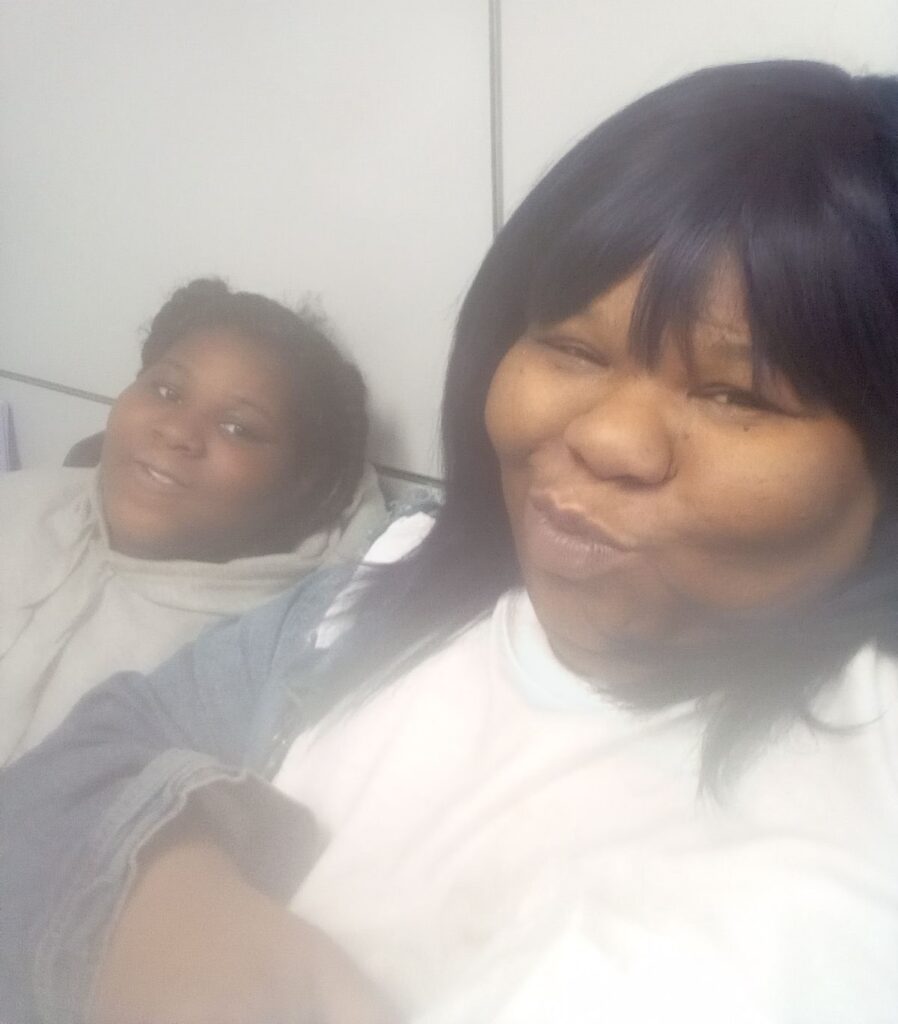
Janeen’s future non-profit home plans reflect the goal setting model of Family Mobility Savings Program that she is excelling in now. Janeen has been able to recognize the positive influence of goal setting, and it is foundational in how she will provide help in the future.
“You’re not going to be there just to be there, you got to make goals,” said Janeen, describing her future house for girls. “You got to step forward and we’ll give you six months to a year to get you on your feet, with a daycare on site.”
By empowering others, there is no telling how many more people will be uplifted through the ripple effect of the Family Mobility Savings Program.
For the full report on the Financial Well-Being Innovation Challenge, click here!